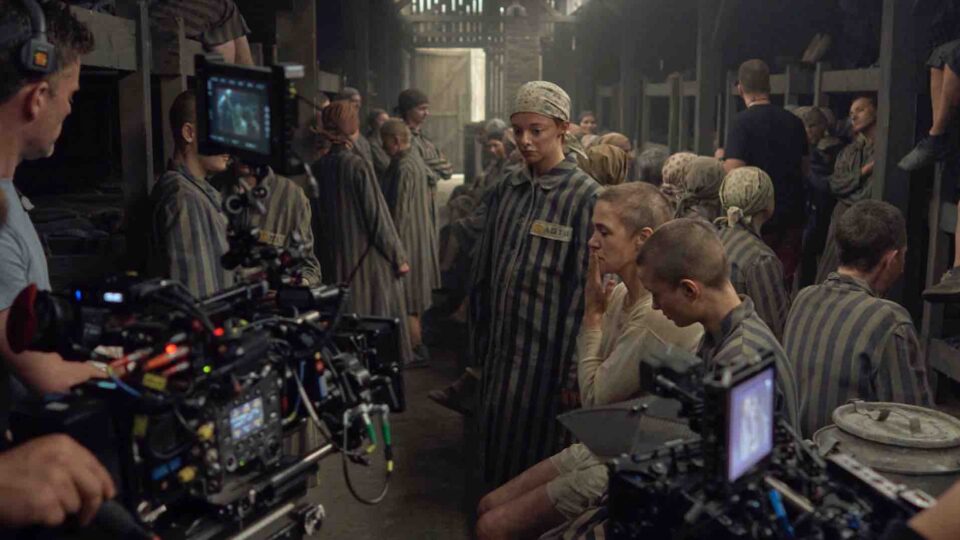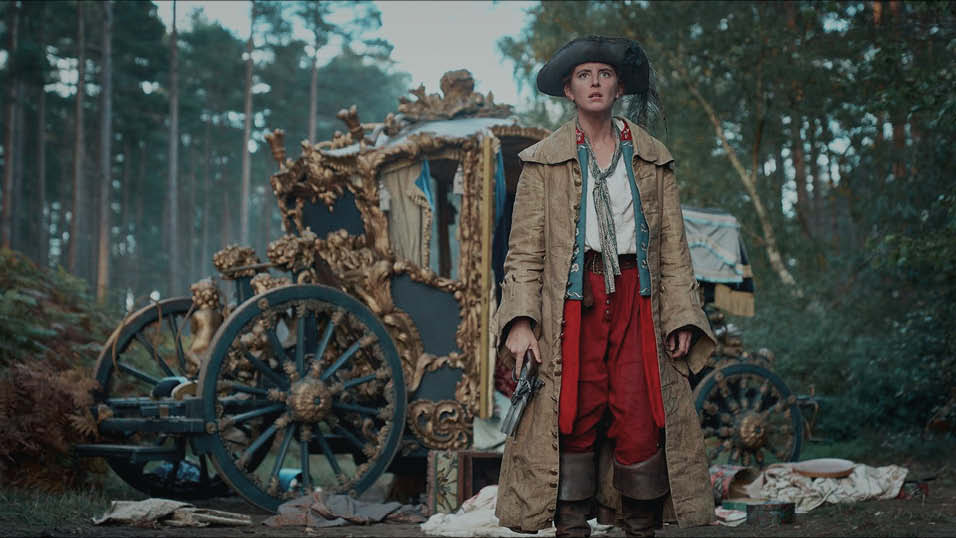With Philomena flying the flag at the Oscars, BBC Films’ Christine Langan tells Tim Dams why the unit is so important to British film
Christine Langan will be paying particularly close attention to the Bafta and Oscar ceremonies over the coming weeks. BBC Films has backed three films in contention for the Oscars: Philomena, Saving Mr. Banks and The Invisible Woman. And BBC Films has scooped 11 nominations for the BAFTAs too.
“It’s thrilling for us,” says BBC Film head Langan, who adds that Philomena is a good example of how BBC Films can make projects happen in the UK. The film “illustrates how our development, money, wherewithal and imagination came into play.”
The project was brought to BBC Films by producer Gabrielle Tana (who’d worked with Langan on Coriolanus), after Steve Coogan’s Baby Cow acquired the rights to Martin Sixsmith’s book. “We all know and love Steve, but it was a major departure for him and it wasn’t that clear what he was going to do with it.” Coogan, she says, wanted to write the screenplay, but didn’t feel he could do it on his own. So Langan suggested working with Jeff Pope, who she had previously collaborated with on Pierrepoint. “I knew if anyone could work with Steve, it would be Jeff. Sure enough they had a bit of a bromance and really hit it off.”
In the same way, BBC Films were instrumental in bringing Judi Dench and director Stephen Frears on to the project. “Once we had Judi involved, the film was a reality. The combination of Steve, Judi and Steven means it is a makeable film.”
Leveraging the BBC brand
Langan sees BBC Films very much as a facilitator – using its contacts, industry knowledge, development skills, money and the BBC brand to help get projects off the ground. The department’s budget is not huge – it stands at £11m a year, which also covers the overhead for BBC Films’ 13 staff. The unit tries to make 8-10 films a year. As one of the UK’s few major funders, it deals with a large volume of submissions and juggles a huge development slate of “less than 100” projects. “Obviously we want to convert as many of those titles as possible into movies,” she says.
Langan argues that BBC Films development know-how is particularly important to the UK film industry. “Development is absolutely crucial – you live or die by good development.” But it’s a cost that many small indies are unable to afford. “It is all risk money, so very few entities are prepared to do that. And if they are, there are tremendous strings attached.”
Langan won’t reveal how much BBC Films puts into each project it backs. “It varies. I like to keep a bit of a question mark over how much we will put in.” She says it is all about leveraging the BBC Films brand, which can bring “so much value that your financial commitment might not need to be huge.”
Audience focus
She also declines to say how much money the BBC earns from the films that it invests in. But it’s clear that BBC Films doesn’t take aggressive equity positions. “I know there is value for money because of the very good licence terms that we acquire with each of our films. We are getting 90 minutes at well below the relative drama rate and free repeats which you don’t get in comparable dramas.”
Indeed, when thinking about what makes a BBC film, Langan says she is very focused on BBC audiences. “Ultimately our films will go on BBC channels, primarily BBC2, and that is obviously something I take into consideration.”
But it’s difficult to categorise them, she says. “Philomena probably describes really well what we do, but I’m really glad we made Alpha Papa. I was thrilled to have that out this summer, but you won’t hear as much about that at the Baftas and Oscars.”
Indeed, the upcoming slate speaks for itself about the kind of features that Langan’s department backs. Ralph Fiennes’s The Invisible Woman was released last month. Shooting has just begun on comedy Man Up, starring Simon Pegg; Shakespearean comedy Bill, from the team behind Horrible Histories, goes into production this month; Rufus Norris is directing the film version of stage hit London Road; John Crowley is directing an adaptation of Colm Toibin novel Brooklyn; and Maggie Smith, Kevin Kline and Kristen Scott Thomas star in My Old Lady.
Langan says that producing films in the UK remains daunting – but there are causes for optimism. “There’s an amazingly healthy variety of films around this awards season. In America the narrative is that ‘film is back’. There was a lot of pessimism and angst about film, and all sorts of very prestigious producers were saying the only way to tell a story is long form narrative on television.” But equally, she says, there is “something very relieving about going into a narrative where the end is in sight and you are not asked to commit across 15 – 20 hours. I think we have the appetite for both.”
CV
Christine Langan first made her name at Granada producing hit drama Cold Feet. Her first feature was Pierrepoint in 2005, and she also produced the award-winning The Queen.
In September 2006, Langan was appointed executive producer at BBC Films.
In April 2009 she became creative director of the division, overseeing commissioning, development and production.
Recent releases include Lasse Hallström’s Salmon Fishing in the Yemen, Max and Dania’s StreetDance 2, Ralph Fiennes’ Coriolanus, Simon Curtis’ My Week with Marilyn, Lynne Ramsay’s We Need to Talk About Kevin, Mike Newell’s Great Expectations, Cary Fukunaga’s Jane Eyre, James Marsh’s Project Nim, Dustin Hoffman’s Quartet, and John Lee Hancock’s Saving Mr Banks.
Tim Dams
Share this story

















